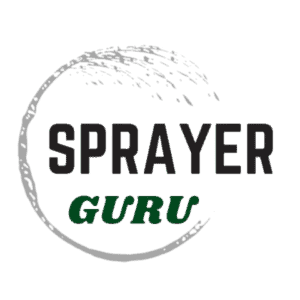Roller pumps are a common tool used in agriculture and turf sprayers. They have the ability to produce more pressure than a centrifugal pump while still offering relatively high flow rates. If you are building a 3-point tractor sprayer, or want to build a sprayer rig with more flow capacity than the 12 V sprayer pumps can produce, a roller pump is a great option.
Roller Pump Flowrate & PSI
In order to compare and determine the right roller pump you need you can refer to the chart below to see how the different models and brands compare.
| Roller Pump Model | Max GPM | Max PSI | Max RPM |
|---|---|---|---|
| Hypro 4001 | 9.1 | 150 | 1800 |
| Hypro 4101 | 7.2 | 150 | 2600 |
| Hypro 6500 | 21.9 | 150 | 1200 |
| Hypro 6500 R | 21.9 | 150 | 1200 |
| Hypro 7560 | 22 | 150 | 1000 |
| Hyrpro 7560 R | 22 | 150 | 1000 |
| Hypro 1700 | 43 | 200 | 1000 |
| Hypro 1700 R | 43 | 200 | 1000 |
| Hypro 1500 | 62.1 | 150 | 1000 |
| Hypro 1500 R | 62.1 | 150 | 1000 |
| Delavan 4900 | 9.2 | 150 | 2600 |
| Delavan 6900 | 22.8 | 300 | 1200 |
| Delavan 6900 R | 22.8 | 300 | 1200 |
| Delavan 7900 | 22.5 | 200 | 850 |
| Ace RP600C | 21.8 | 300 | 1200 |
| Ace RP600CR | 21.8 | 300 | 1200 |
| Ace RP800C | 22.5 | 300 | 1000 |
| Ace RP800CR | 22.5 | 300 | 1000 |
Max GPM
The GPM column references the maximum flow rate of the pump. A roller pump will only produce its maximum output when it is driven at its maximum RPM. The maximum flow rate listed for each pump is only achieved when the pump is driven at its maximum RPM and there is no pressure loss, essentially meaning open discharge on the outlet of the pump.
Practically speaking, if you need an 8 GPM max flow rate for your sprayer, you should not expect a roller pump with a maximum flow of 8 GPM to achieve this. The discharge hoses, strainers, valves, and sprayer nozzles will add to the pressure loss and reduce the maximum flow rate of your pump.
Max PSI
The column labeled Max PSI shows the amount of pressure each roller pump can achieve when driven at the maximum RPM and adequate horsepower.
The plumbing on the discharge side of the pump will have an effect on the maximum pressure. If you have a spraying job that requires 200 psi, you should choose a pump that has a maximum pressure above 200 psi because it is not likely that you will be able to operate at the pump’s absolute maximum listed pressure.
RPM
Not all roller pumps are made to be run at the same rpm. Some are intended to be driven by a PTO at 540 or 1000 rpm.
Other roller pumps are intended to be driven at faster rpm. A gas engine can e used but do bite that a gas engine is usually capable Of operating at nearly 3500 RPM. So if you use a roller pump with a max rpm of 1000 with a gas engine you need to have some way to make sure the pump is operated at the correct RPM. A gearbox or a belt-driven setup with appropriately sized pulleys would be needed.
Also, the shafts of a PTO, gas engines, and electric motors do not all turn in the same direction. Roller pumps are made to be driven in either a clockwise or counterclockwise direction. So you must match the correct pump with the shaft rotation of your engine, motor, or PTO.
Choosing a Roller Pump
When choosing a roller pump to work for your situation, you must consider the flow rate you need, the psi, the shaft rotation, the rpm, and the material the roller pump is constructed of.
If you were using a roller pump for a boom sprayer do you need to calculate the total flow capacity of all the nozzles on your boom in addition to agitation and then add about 20% to account for potential increase in flow when needed. You can see a detailed guide In this article about selecting the correct sprayer pump size.
What you are spraying also matters, roller pumps are made out of cast iron but if you are using Roundup or fertilizers, you may want to invest in a stainless or silver cast roller pole, these are more expensive but they will hold up overtime to the abrasive and harsh chemicals.
Before You Go
Most roller pumps on the market are very similar in their capabilities but it is important to compare them. Understanding how a roller pump will perform when installed on a sprayer. If you are looking for help installing your roller pump, you will find it in this article about hooking up a sprayer pump.

